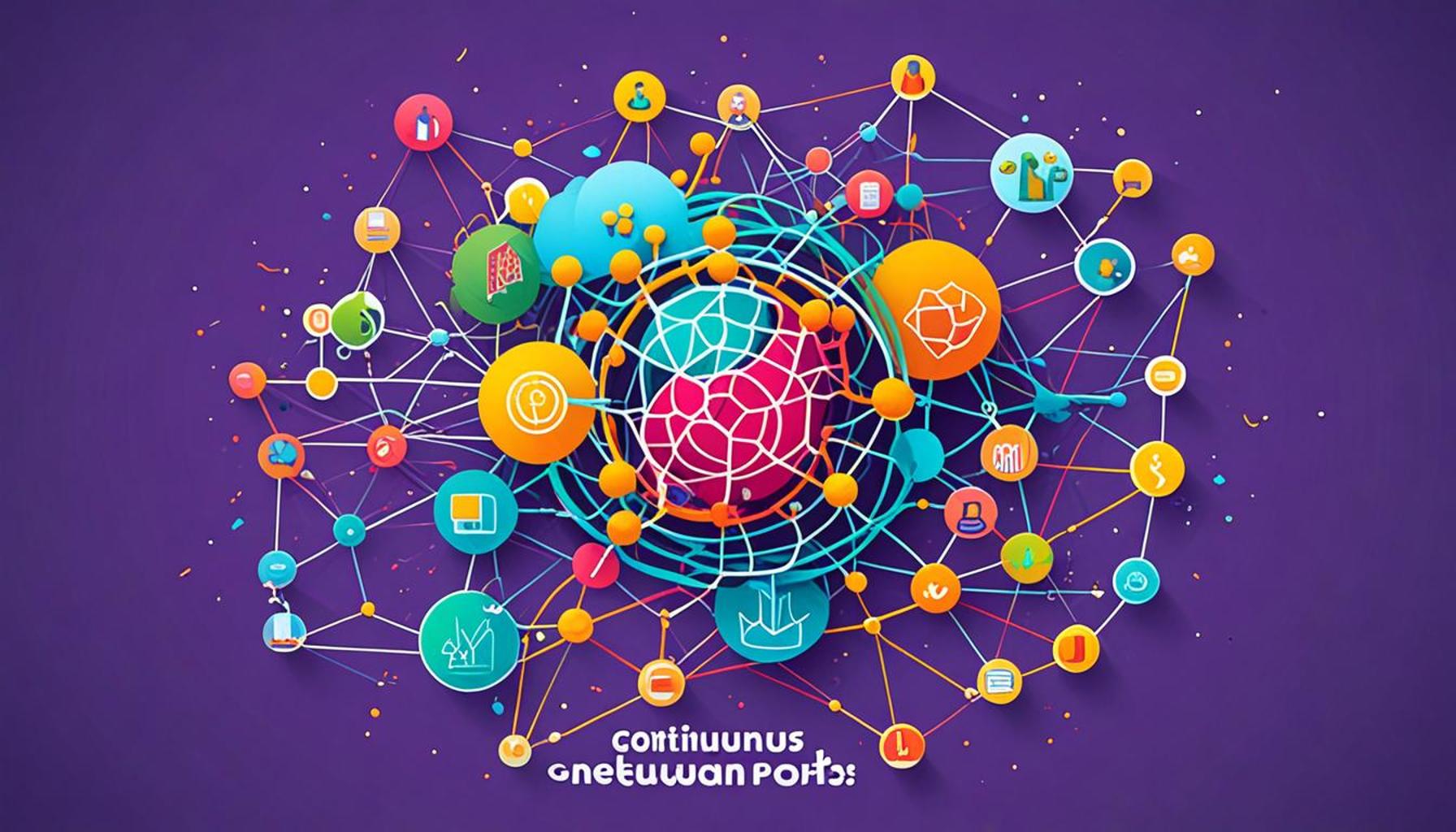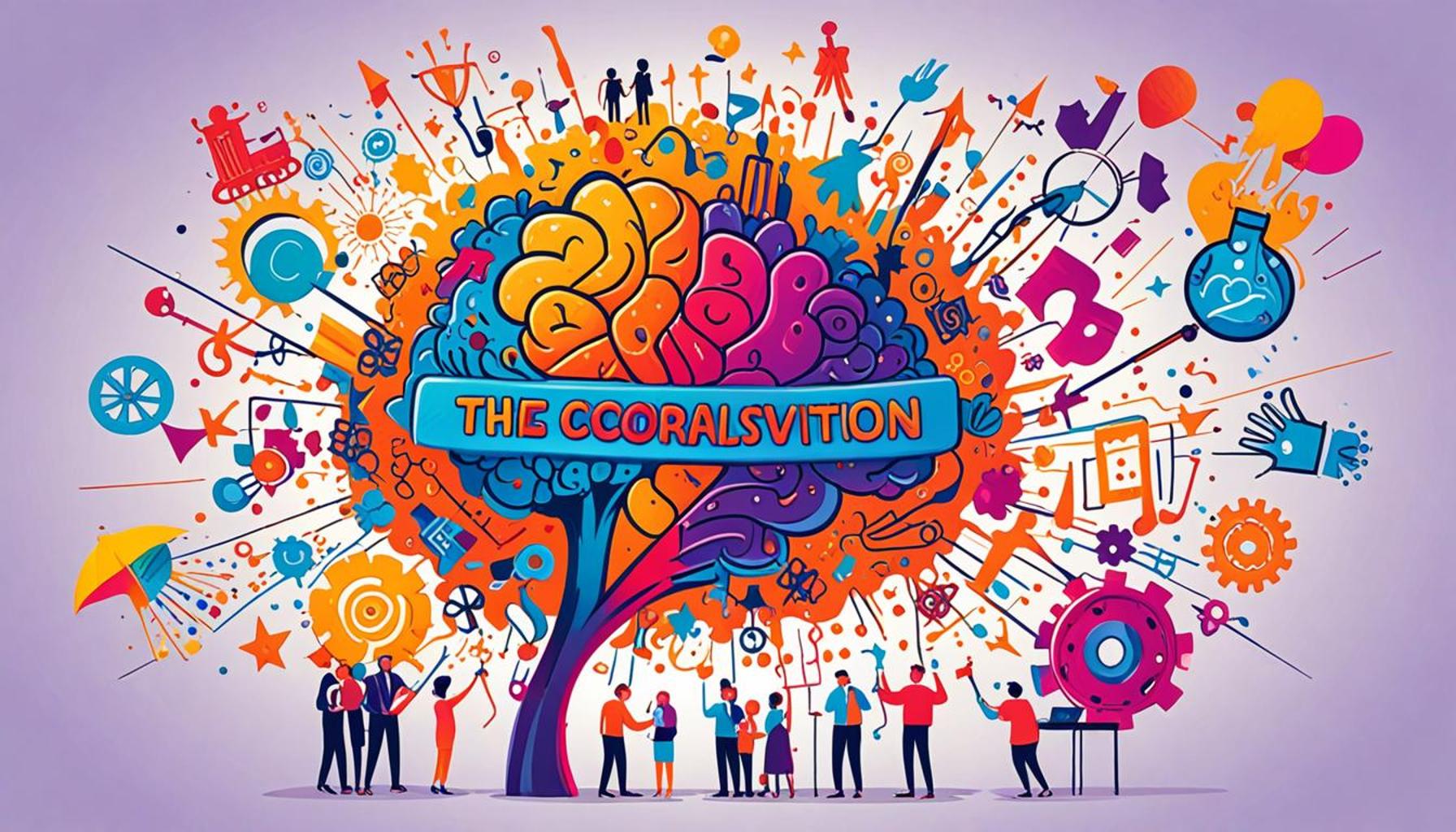Continuous Learning and Networking: Building Connections for Growth Opportunities

The Importance of Building Connections in Nigeria
In today’s fast-paced world, continuous learning and networking are not just beneficial; they are essential for personal and professional growth. Nigerians are increasingly recognizing that by enhancing their skills and expanding their networks, they can unlock a multitude of opportunities. As industries evolve and technology advances, the ability to learn and connect becomes the key to thriving in competitive environments.
Access to Knowledge
Engaging in workshops, online courses, and seminars offers invaluable opportunities for knowledge acquisition. In Nigeria, platforms such as Coursera, Udemy, and local institutions offer a wealth of online courses tailored to various fields, from technology to the arts. Attending local events, like the renowned Social Media Week Lagos, allows individuals to learn from industry experts and practitioners. This exposure not only enhances theoretical knowledge but also provides practical insights that are vital for real-world application.
Enhanced Skills
Strengthening your expertise through practical experience is a cornerstone of continuous learning. Volunteering for community projects or internships can provide hands-on experience that theoretical learning cannot. For example, being involved in a tech startup, whether in software development or project management, equips individuals with skills that are highly sought after in Nigeria’s burgeoning tech ecosystem. This type of experience can significantly elevate one’s resume, making them more attractive to potential employers.
Networking Opportunities
Building relationships with peers, mentors, and industry leaders is crucial for career advancement. In Nigeria, professional bodies like the Nigerian Institute of Management and various industry-specific associations provide platforms for networking. These connections can lead to collaborative projects, job opportunities, and mentorship that can be instrumental in one’s career. By mingling with professionals at conferences or engaging in social media discussions, individuals can create meaningful relationships that yield long-term benefits.
In a country rich in diversity and dynamic markets, the potential for growth is immense. Networking can open doors that might otherwise remain closed. It cultivates a culture where knowledge sharing is encouraged, leading to innovations and success stories. Consider how many successful Nigerian entrepreneurs, such as Aliko Dangote and Iyinoluwa Aboyeji, emphasize the role of relationships in their journeys. Their networks have provided access to capital, mentorship, and vital industry insights required to navigate the complexities of business.
Continuous learning not only fosters adaptability—an essential trait in an ever-evolving landscape—but also encourages individuals to embrace change. By honing new skills and staying abreast of industry trends, Nigerians can position themselves to seize upcoming opportunities, whether they are local or global.
As you navigate your professional journey, remember that the connections you make can be as valuable as the knowledge you gain. These relationships can provide insights and support that catalyze your growth, making your path to success not just about personal advancement, but also about contributing to a larger community. Ultimately, investing in continuous learning and networking paves the way for a brighter and more prosperous future for individuals and the nation as a whole.
SEE ALSO: Click here to read another article
Unlocking Growth through Continuous Learning and Networking
In an era where knowledge is a powerful resource, continuous learning plays a pivotal role in navigating career pathways in Nigeria. The dynamic nature of various industries demands that professionals not only acquire new skills but also remain relevant in their fields. This ongoing pursuit of knowledge facilitates personal development and enhances one’s professional appeal. By staying updated with the latest industry trends and innovations, individuals can ensure they are equipped to respond to the challenges of an ever-evolving job market.
Essential Skills for the 21st Century
As the world becomes more interconnected, the demand for specific skills is increasing. Professionals must focus on developing competencies that are highly valued in the modern workforce. Key skills that Nigerians can benefit from acquiring include:
- Digital Literacy: Understanding various digital tools and platforms is essential in today’s tech-driven environment.
- Critical Thinking: The ability to analyze information and make informed decisions is crucial for problem-solving.
- Communication Skills: Articulating ideas clearly and effectively across different mediums is vital for collaboration.
- Adaptability: With constant change comes the need for flexibility in thought and action.
- Leadership: Cultivating leadership skills can position individuals to take charge of opportunities and inspire others.
These skills are not only important for professional advancement but also for contributing positively to community development and economic growth in Nigeria.
Leveraging Online Platforms for Continuous Learning
The rise of online platforms has revolutionized access to education, providing an array of resources for continuous learning. Websites such as LinkedIn Learning and Skillshare offer courses ranging from business management to creative arts, catering to diverse interests. Furthermore, local initiatives like the Digital Job Creation Initiative have emerged to equip Nigerians with necessary skills in digital marketing, coding, and e-commerce.
By taking advantage of these platforms, individuals can learn at their own pace and from the comfort of their homes. This flexibility is particularly beneficial in a bustling nation like Nigeria, where work and life come with unique challenges. As more Nigerians engage in self-directed learning, they position themselves as competitive candidates in the job market.
Connecting with Like-Minded Professionals
Networking extends beyond simply exchanging contact information; it is about forming genuine connections that can lead to collaborative opportunities and mutual growth. Fellow professionals may provide insights, share job leads, or offer mentorship, paving the way for career advancement.
To effectively network, consider these strategies:
- Attend Industry Events: Events such as conferences, seminars, and webinars can be a fertile ground for meeting peers.
- Join Professional Associations: Engaging with organizations related to your field provides access to a broader network.
- Utilize Social Media: Platforms like Twitter and LinkedIn can be used to connect with industry experts and participate in relevant discussions.
- Volunteer for Projects: Contributing to community initiatives can help in meeting others who share your interests and goals.
By actively participating in these networking avenues, Nigerians can cultivate relationships that not only enhance their knowledge base but also open doors to numerous professional pathways. The essence of networking lies in the relationships formed, which can act as catalysts for opportunities that contribute to personal and societal growth.
| Category | Key Features |
|---|---|
| Networking Events | Opportunities to meet industry leaders and peers, fostering meaningful relationships. |
| Skill Development | Workshops and seminars enhance personal and professional growth through continuous learning. |
Engaging in networking events not only opens doors to new career opportunities but also allows individuals to connect with like-minded professionals. These gatherings often feature industry leaders sharing insights and strategies that can lead to innovative collaborations. Established networks provide a platform to share resources, ask for advice, and gain mentorship, which can be crucial for professional development. Furthermore, investing in skill development through workshops and online courses is vital. This continuous learning approach equips individuals with the latest skills needed in a dynamic job market. By attending relevant seminars, you can stay ahead of industry trends, enhancing your employability. Leveraging these connections facilitates knowledge exchange that propels personal growth and expands professional horizons. The synergy created through shared experiences is invaluable, highlighting the intertwined nature of learning and networking for sustained success.
ADDITIONAL INSIGHTS: Expand your understanding here
The Role of Mentorship in Continuous Learning and Networking
As individuals strive for personal and professional growth, the significance of mentorship cannot be overstated. Mentors play an essential role in providing guidance, support, and valuable industry insights, helping mentees navigate their career paths more effectively. In the Nigerian context, where emerging professionals may face distinct challenges, having a mentor can offer a competitive advantage.
Mentorship fosters an environment of continuous learning. A mentor’s experience can enlighten mentees about industry trends, best practices, and potential pitfalls to avoid. For instance, Nigeria’s rapidly growing tech ecosystem benefits immensely from established professionals sharing their journeys with newcomers, encouraging innovation and entrepreneurship.
Formal and Informal Mentorship Opportunities
Building a mentorship relationship can happen through both formal and informal avenues. Many organizations and educational institutions in Nigeria are beginning to establish formal mentorship programs, creating structured platforms where mentors and mentees can connect. Programs like the Mentoring Programme of the Nigerian Economic Summit Group aim to link young professionals with seasoned experts, enhancing knowledge sharing and fostering long-term relationships.
In addition to formal setups, informal mentorship often occurs organically through networking events or even social gatherings. A casual conversation at a conference or a community workshop can potentially lead to a mentor-mentee relationship. Therefore, it’s crucial to approach every interaction with an openness to learn and connect.
Expanding Your Network through Collaborative Initiatives
In the pursuit of continuous learning, engaging in collaborative initiatives can expand professional networks and enhance learning experiences. Participating in group projects, workshops, or hackathons allows individuals to work alongside others, fostering connections while honing skills in real-world situations. For example, events like the Startup Weekend in Nigeria provide platforms for entrepreneurs to collaborate, innovate, and learn from each other.
Such initiatives not only contribute to personal growth but also strengthen community ties, creating a rich tapestry of shared knowledge and improved opportunities. Community support networks proliferate through platforms like Kiva Nigeria and <strong#;The African Entrepreneur Collective, which encourage local businesses to collaborate and share learning experiences.
Building an Online Presence for Networking
In today’s digital world, building a strong online presence is vital when it comes to networking and continuous learning. A well-maintained professional profile on platforms like LinkedIn can showcase skills, achievements, and professional interests, making it easier for industry peers to find and connect. Engaging in relevant discussions or sharing informative content positions individuals as thought leaders in their areas, attracting potential mentors and collaborators.
Moreover, joining online forums and groups can enhance learning opportunities. Platforms such as Reddit and specialized Facebook groups allow individuals to seek advice, exchange knowledge, and receive feedback on their projects. Interactive platforms encourage dialogue and contribute to a sense of community among professionals striving for growth.
By embracing the lifeblood of mentorship and collaboration, Nigerian professionals can skillfully weave a web of relationships that serve not only as a foundation for personal advancement but also as a collective rise in the nation’s professional landscape.
SEE ALSO: Click here to read another article
Conclusion
In conclusion, the journey of continuous learning and networking is essential for personal and professional development, particularly in the vibrant landscape of Nigeria. As we’ve explored, the foundation of growth lies not only in acquiring new skills but also in the invaluable connections formed through mentorship and collaboration. Professionals should actively seek mentorship opportunities, whether formal or informal, to tap into the wisdom of experienced individuals who can guide them through the intricacies of their careers.
Engaging in collaborative initiatives further expands professional networks, offering platforms for individuals to share insights and foster creativity. Events, workshops, and local community projects are excellent starting points for building these connections, illustrating that growth does not occur in isolation but is enhanced through collective efforts. In today’s digital age, establishing a strong online presence on platforms like LinkedIn and participating in online discussions broadens one’s reach, creating additional avenues for learning and collaboration.
Ultimately, embracing these strategies can lead to a robust professional ecosystem. By continually learning and widening their networks, Nigerian professionals can not only elevate their own careers but also contribute to the overall advancement of their communities. The potential for success is limitless when individuals prioritize growth and cultivate connections that empower them on their journey. As the Nigerian workforce evolves, let every interaction be seen as a step toward a brighter future brimming with opportunities.


